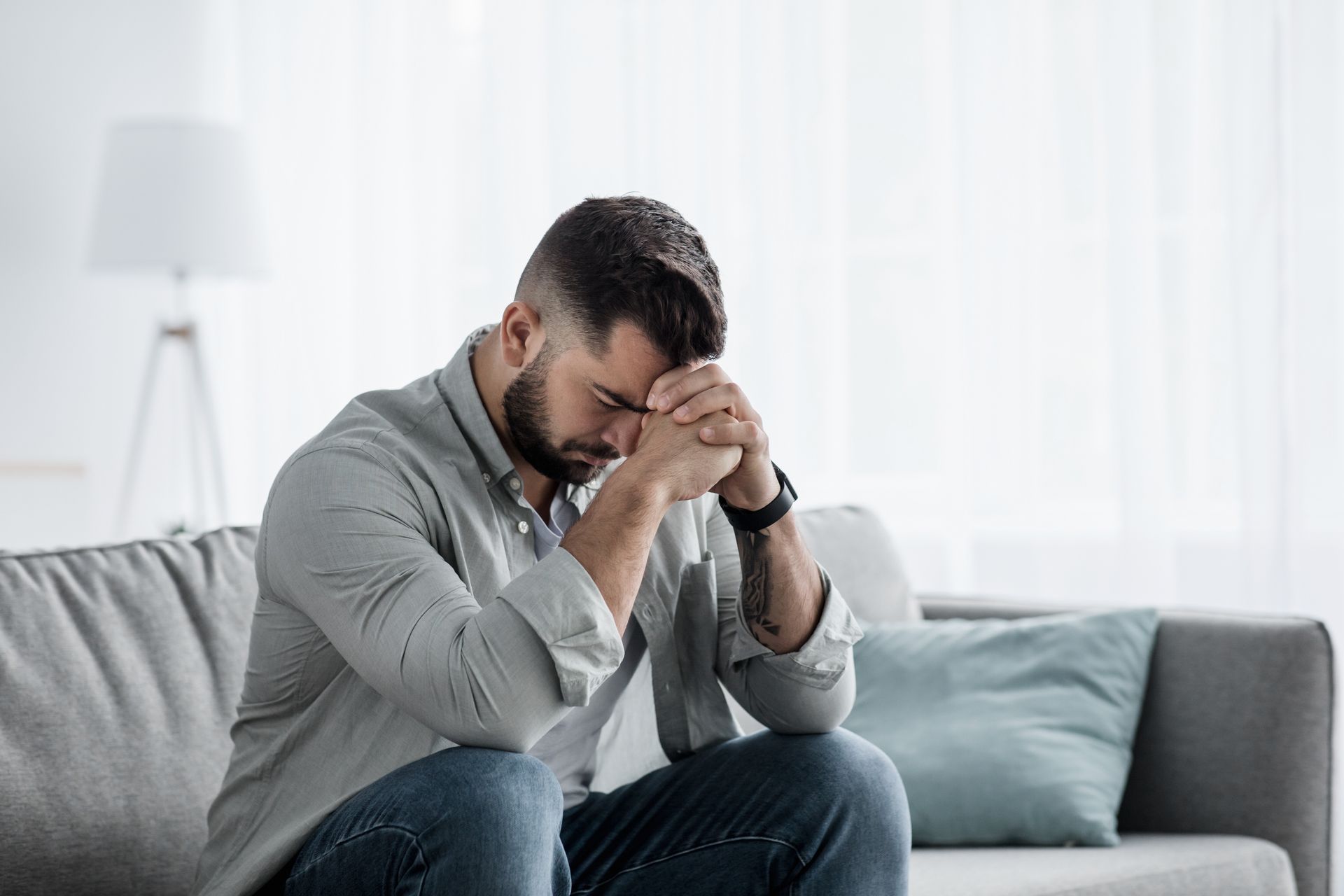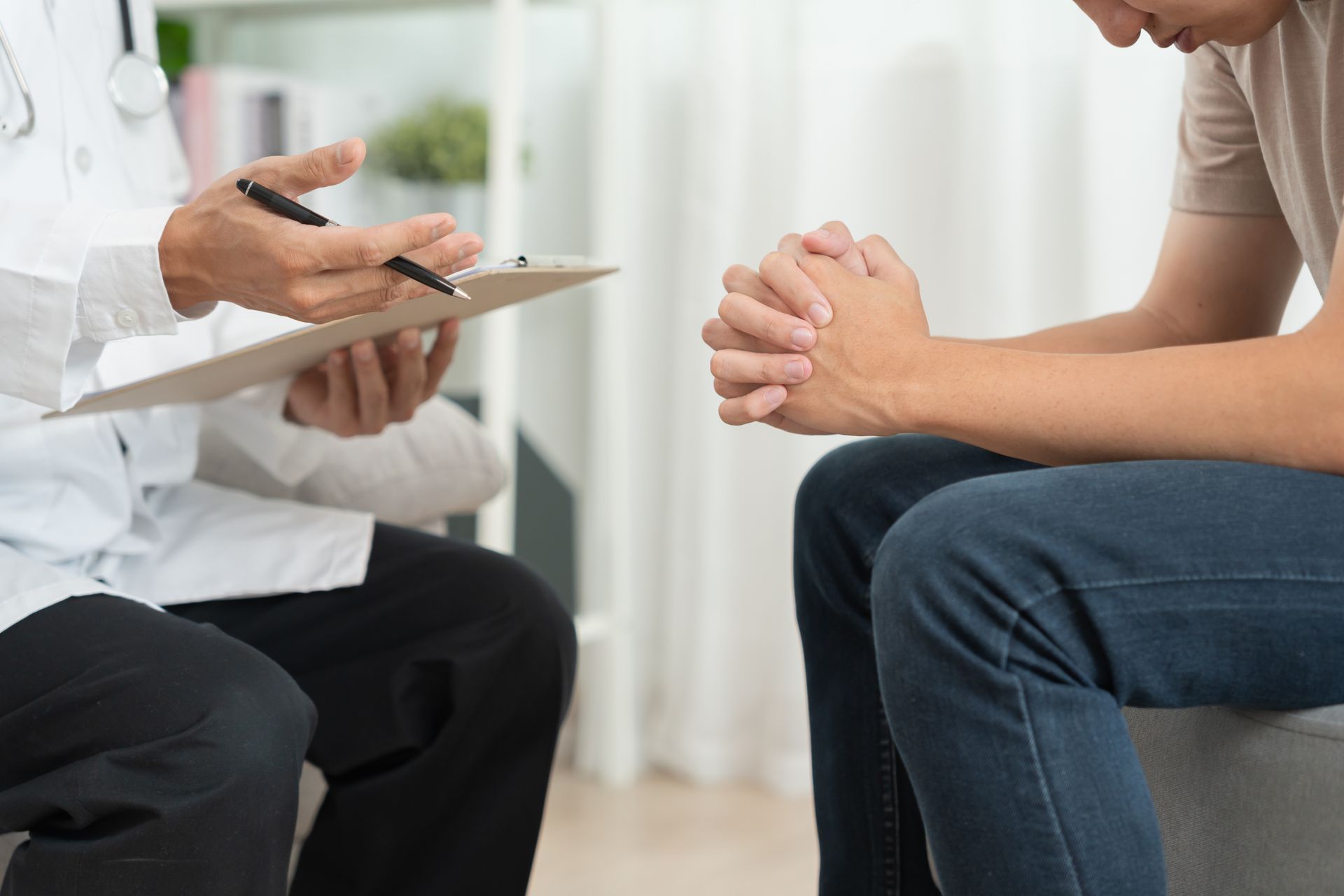“Struggling in Silence” A Decline in Mental Health Among US Teens

There is a growing concern in the United States regarding teenagers and a mental health decline. When it comes to a teenager’s health, we focus on their age, but not on reality. We like to think of our youth as our golden years.
Your youth is not an excuse for struggling with mental health. Sadly, more teenagers are suffering in silence.
Not only does mental health affect physical health, but untreated, mental health can interfere with learning, socialization, self-esteem, and more important aspects of development. It makes life harder to enjoy too.
A frightened and free-spirited 13-year-old girl in suburban Minneapolis sprang out of a living room chair and raced from the home. Her mother, Linda, found her daughter’s phone and was alarmed by what she saw. Her daughter's photos were of her bloodied ankle and her romantic obsession with an anime character named Genocide Jack.
Genocide Jack is a brunette girl with a long tongue who kills school classmates with scissors. This was a character that the little girl idolized and related to. Her mother had watched her daughter self-harm, attempt suicide, and suffer from depression.
This event was a result of not paying close attention to the warning signs. Unfortunately, Linda’s daughter is only a small fraction of the stories we hear today about teenagers struggling with mental health. If you think about it, three decades ago the worst problem with teenagers was public health threats like drinking and teenage pregnancy.
However, f you fast forward to today, 13 percent of teenagers reported having a major depressive episode. This is a 60 percent increase from 2007. According to New York Times, emergency room visits by children and teenagers in that period rose sharply for anxiety, mood disorders, and self-harm.
Suicide rates leaped to 60 percent between the ages of 10-and 24. Why is this happening though and what can be done to prevent tragedies from occurring.
- Why Teenagers Are Struggling in Silence
- Social Media’s Effect on Mental Health
- Mental Health is as Important as Physical Health
- What Can Be Done
- Final Thoughts
Let’s take a closer look at why this is happening.
Why Teenagers Are Struggling in Silence
The COVID pandemic pushed a divide in the country including socioeconomic and urban areas. This type of information is available everywhere. While young people are more educated, less likely to get pregnant, and less likely to die from accidents or injury, the result isn’t what it should be. Teenagers should be thriving and excited. Nevertheless, Teenagers are suffering in silence because of the big contributor to the mental health crisis in social media.
Teenagers are spending less time physically active. In addition, they spend less time in person with their friends and less sleep. These are major contributing factors to the mental health decline in our youth.
Social Media’s Effect on Mental Health
One of the most significant distinctions between today's youth and young adults and previous generations is that they spend far less time in person socializing with their friends and far more time connecting online, mostly through social media.
Depression among teens and young adults has been increasingly widespread in recent years, according to studies. During this period, the usage of social media has also risen. It's difficult to say whether or not social media contributes to depression. Still, there are a number of ways that social media may be harmful to children.
The evidence that there is a relationship between social media and depression is growing. Teenage and young adult users who spend the most time on Instagram, Facebook, and other platforms had a much greater risk of reported sadness (from 13 to 66 percent) than those who spend the least time.
Along with social media, smartphone use has increased too.
Social Media has replaced social interaction. Not to mention, kids and teenagers who are exposed to Social Media consider it to be the epitome of life. What teenagers fail to realize is that Social Media is not a reflection of life. For example, Instagram posts can be highly edited or focus on only the best parts of someone’s life.
Mental Health is as Important as Physical Health
Teenagers are youthful and because of this may not understand the effects of not focusing on mental health. The common misconception is that mental health and physical health are separate. This couldn’t be further from the truth.
Physical symptoms might accompany mental health issues. Our bodies and brains are not distinct, it's not unexpected that mental illness may have an impact on your physical health. Depression can come with headaches, fatigue, and digestive problems, and anxiety can create an upset stomach, for example.
Other symptoms can include insomnia, restlessness, and difficulty concentrating. To work on improving mental health, there are solutions to what can be done to prevent serious problems in the future.
What Can Be Done
If your teenager or child is suffering from depression or anxiety, don’t wait until it’s too late.
Pay attention and consider what you observe. If you need immediate assistance, seek online counseling or visit your doctor. Don't put it off any longer. If your child talks about harming themselves or others, get help immediately, such as by going to your local emergency room. In this situation, it’s better to overreact than underreact.
Encourage Healthy Media Habits
Being on their gadgets is one of the things that kids nowadays like doing, which may be entertaining and link them with friends, but it can also lead to mental health issues. Discuss your child's media usage with them.
Make Sure Your Teenager is Getting Enough Sleep
We forget to sleep sometimes or get too distracted with life to take a pause. Teenagers need a minimum of 9-10 hours of sleep. Both are extremely vital for both mental and physical wellness. Here are tips on how you can make sure your teenager is getting enough sleep.
- Have an environment that encourages sleep
- Know how factors influence sleep
- Limit Caffeine
- Limit Naps
- Ensure that they exercise
- Calming routine before bed such as reading
- Turn off screens before bed
Work with a Counselor
Counselors can assist with a teenager’s mental health. Teen counseling is a type of therapy designed exclusively for teenagers. With counseling, teenagers engage in talk therapy with a mental health professional in a secure setting with the goal of better understanding and expressing their thoughts, identifying and solving difficulties, and developing good coping skills. Counseling can take the shape of one-on-one or group talk therapy sessions.
With resources out there, you can find virtual counseling or online counseling that can be convenient and a safe place for your child to discuss their concerns.
When should your teenager seek help? Here are some warning signs to look out for:
- Attention-deficit/hyperactivity disorder (ADHD)2
- Autism and Anxiety Disorders
- Behavioral problems
- Coping with a chronic health condition
- Cultural or racial discrimination
- Depression3
- Discovering sexuality, sexual orientation, and/or gender identity
- Eating disorders
- Grief
- Loneliness
- Obsessive-compulsive disorder (OCD)
- Personality disorders
- Problems with self-awareness, self-esteem, or self-worth
- Relationship problems
- School and social-related issues like bullying
- Self-harm, suicidal thoughts, or risky behaviors
- Stress management
- Substance use
- Trauma
Final Thoughts
Teenagers don’t need to suffer in silence. It’s time for us to focus on our youth. They're moving forward through a difficult time period. Despite the technological advances, they are exposed to more knowledge and material than the generations before them.
This is a mental health crisis we genuinely need to pay attention to. Pay attention to the warning signs and don’t blame yourself if your child is going through a difficult time.
You, your adolescent, and the therapist will collaborate to set treatment objectives so that your teen's development can be tracked and therapy outcomes may be monitored.
The length of time it takes for your teen to progress is determined by their health.











